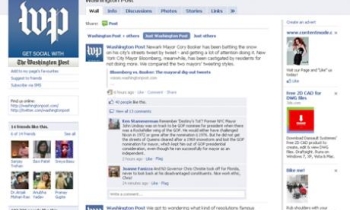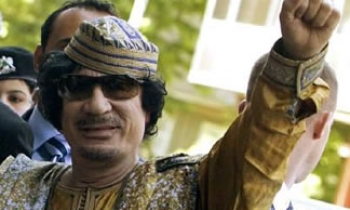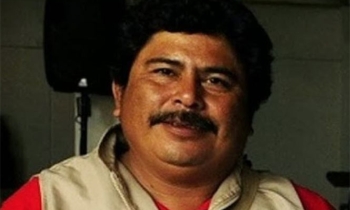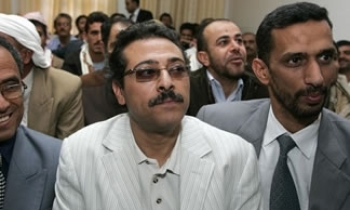There have been swift recriminations in the United States after much of the media carried the tragically wrong news that 12 of the 13 coal miners trapped in West Virginia had been found alive.
News that the men had in fact died broke early on Wednesday morning, three hours after family members and the West Virginia Governor Joe Manchin had been wrongly told the miners were alive.
Several US newspapers went to press with headlines such as "Miracle in the Mine" and "Alive!", while many cable-watchers drifted off to sleep to reports of joy and relief.
While mining officials came under pressure to explain how the miscommunication occurred and went uncorrected for so long, the media is also facing criticism.
"Perhaps not since 'Dewey Defeats Truman' has the nation awoken to newspaper headlines so wrong," CBS News said, a reference to the Chicago Daily Tribune's infamous miscall of the 1948 presidential election.
"What has followed this morning has been a lot of confusion, not to mention plenty of anger directed at officials in charge of the rescue operation and the media," said an editorial on the CBS website.
Critics say news organisations should have been more cautious in what they were reporting and in distinguishing between what had been confirmed and what had not.
One of the early broadsides came from the Editor & Publisher's Greg Mitchell, who described it as "one of the most disturbing and disgraceful media performances of this type in recent years".
Media exposed
"For hours, starting just before midnight, newspaper reporters and anchors... interviewed euphoric loved ones and helped spread the news about the miracle rescue," Mr Mitchell said.
It is unclear why the media carried the news without proper sourcing. Some reports claim the early reports spread via cell phones and when loved ones started celebrating most in the media simply joined in."
The tragic turnabout left newspapers particularly exposed.
Early, erroneous reports in editions of major papers like the New York Times, Washington Post and USA Today were a darkly ironic echo of how the night had unfolded.
"Great joy turned to deep sorrow and rage," as the Post reported in later editions.
Television reporters live at the scene in West Virginia appeared visibly shocked as the story of an incredible survival took a tragic turn shortly before 0300.
CNN's Randi Kaye, reporting from Weston, said: "There was such a long time before there was any new information. You could see the mood of people starting to change. That was when we realised something was wrong."
'Instant news'
Throughout Wednesday, one of the main questions was why it had taken officials so long to correct the misunderstanding that the men were alive.
Kathleen Reardon, of the Huffington Post blog, suggested that it was "reminiscent of [Hurricane] Katrina victims being assured help was on the way when clearly it was not".
"Something went very wrong here and, given recent history, it is likely to occur again and again unless and until we get at what really happened.
"How is it that so many seemingly competent people were unable to prevent the botching of an already tragic situation?"
For pundit Jeff Jarvis, of Buzzmachine.com, the tragedy was a "terrible lesson... that you can't trust the news".
"It has always taken time to see whether stories pan out, to get all the facts, to find out the truth," Jarvis wrote.
"But now, in our age of instant news and ubiquitous communication, the public sees this process as it occurs.
He added: "The next time I hear someone being haughty about professional news v citizens' news, I'll remind them of the West Virginia tragedy, where news travelled ahead of the facts, where everyone was horribly wrong."
'No issue'
Some newspapers said they would run stories on Thursday explaining how the story was handled.
Yet many shared the view that running with what seemed credible information was an honest mistake, rather than journalistic failure.
"I'm not sure there's much of an issue here," Martin Baron, editor of The Boston Globe told the Associated Press.
His editors worked through the night, adjusting the story as more information came in.
Baron noted that reports the miners were safe had come from a number of credible, named sources, including family members and Governor Manchin.
"At some point you have to publish," Baron said.
"You can't sit there waiting for every last piece of information, because the paper would then go out at noon, and people would wonder why they didn't get their paper."









